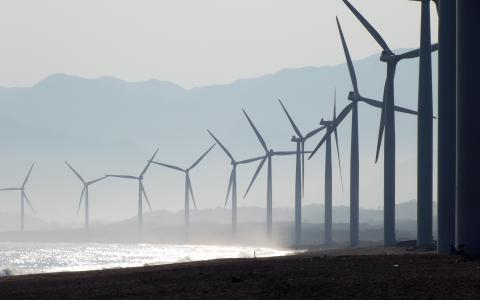
(Money Marketing) - One of the strongest, and most influential trends of recent years has been the shift to ESG investing. Now, a common challenges for portfolio managers considering ESG portfolios is understanding whether there is a relationship between responsible investment and extra performance.
To assess whether there is a link we created an ESG leaders portfolio and analysed its performance relative to the MSCI World index over the past five years. This MSCI ESG leaders portfolio was based on the parent index but used MSCI ESG rated companies at AAA or AA. It was also adjusted for controversies (green flagged companies only) and for sector bias.
Over five years to 31 December 2020, the MSCI World ESG Leaders portfolio returned 167.11%. During the same period, the MSCI World portfolio returned 105.31%.
Therefore leaders portfolio outperformed by 61.8% from which 46% came from stock selection performance. From a portfolio/index perspective, so far, so good.
The next task is to pick a fund with good risk adjusted performance.
Many sustainable funds are now reaching ‘maturity’ from a performance data perspective (at least three years of returns) and there are several ways that investors can analyse how ESG investments are performing in the context of the wider market.
One such way is through fund ratings. In July, FE Investments published its biannual Crown Ratings, which track the risk adjusted performance of investment funds, accounting for consistency.
Of the 17 funds gaining the highest rating at the first time of asking, three were ‘ESG’ funds. These were BNY Mellon’s Sustainable Global Equity, Jupiter’s Global Sustainable Equities and Montanaro’s Better World funds.
These have all registered strong performance over the past 18 months. This has come about from a combination of factors, such as favourable market conditions and growing interest in ESG from investors and fund groups alike.
We also see ESG as a competence issue for companies. If you operate a company with strong responsible investment characteristics, it demonstrates a higher level of competence and better management should deliver stronger returns.
Another way is through alpha generation..
When we looked again at these funds, all three had enjoyed significant periods of alpha performance in comparison with their sector benchmarks. The Montanaro Better World fund, in particular, enjoyed a strong end to 2020, outperforming its benchmark in excess of 40% for the final two quarters. A market fall occurred in the early part of 2021, but when you consider the IA Global Sector has been one of the standout sectors in terms of performance throughout the pandemic, the periods of alpha generation become even more impressive. Elsewhere, Jupiter’s Global Sustainable Equities fund enjoyed alpha returns in eight of the past 12 quarters – 75%.
So, can ESG funds outperform the market? It would seem like there is evidence to suggest they can. Caveats remain though.
Firstly, we can see that adjusting an index for ESG strategies there appears to be better performance, but we also see that stock picking remains an essential component of fund performance. The funds we reviewed are heavily invested in companies like Cisco Systems, Sartorius Stedim Biotech, and Paypal – all of which boomed during the pandemic.
Secondly, we must remember ESG investments perform differently to their peers, the broader market and industry sectors in times of market stress. To drive risk adjusted returns we need investments that perform differently from each other over time. This helps smooth performance and maximise diversification, which is why many savvy investors are including ESG funds into their portfolios and wider investment strategies



